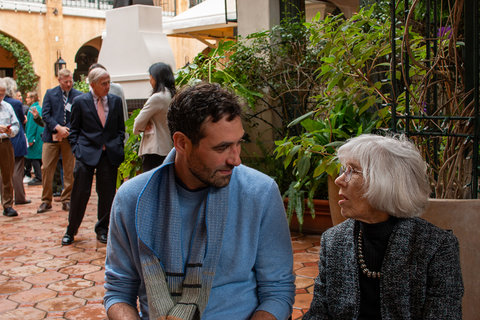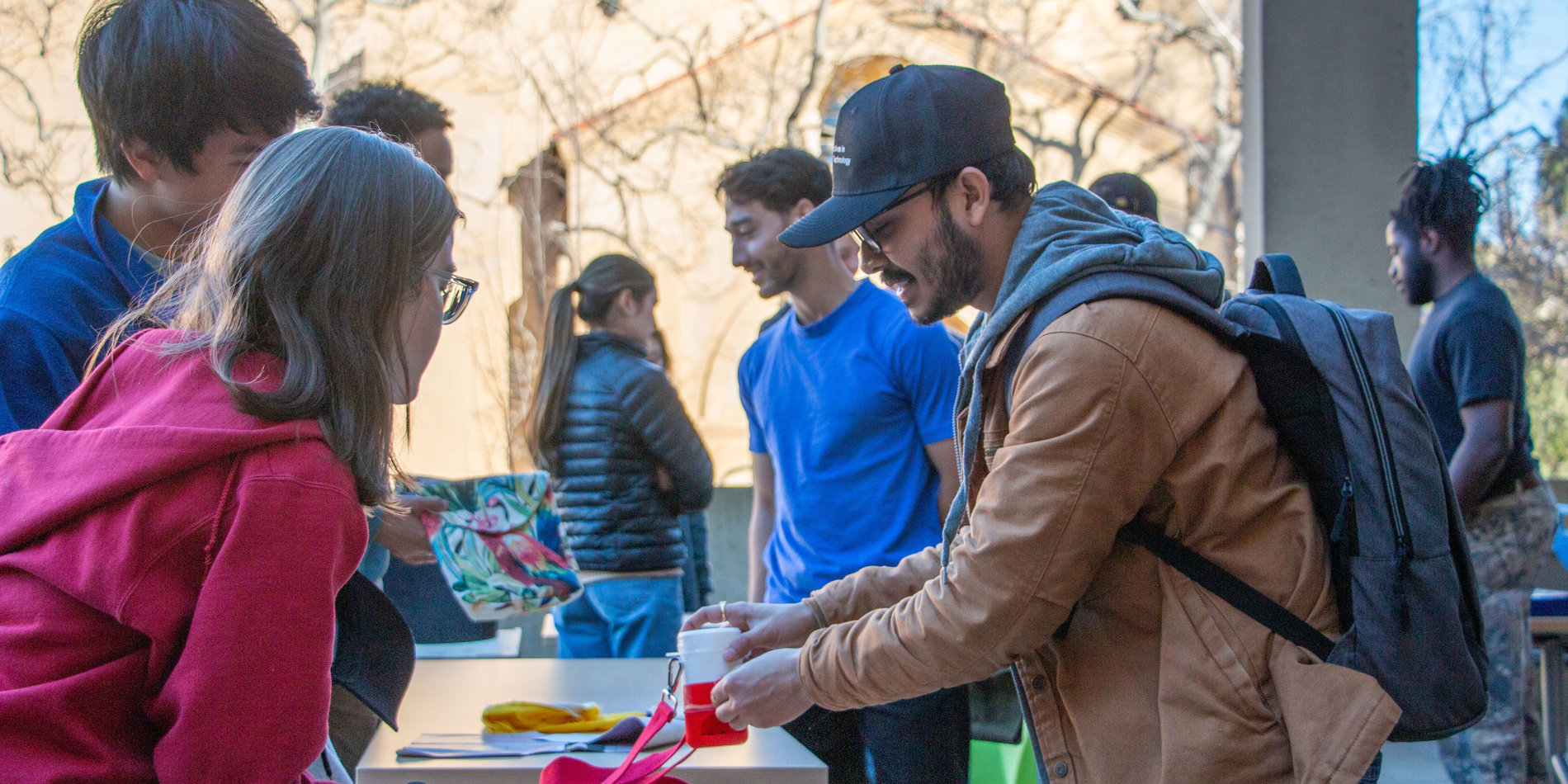Chris Piech is awarded the 2024 Roland Prize

Chris Piech—assistant professor (teaching) of computer science and, by courtesy, of education—has been awarded the 2024 Miriam Aaron Roland Volunteer Service Prize in recognition of his efforts to make computer science education accessible to all, especially through the Code in Place initiative.
The Roland Prize was established in 2004 at the Haas Center for Public Service with a gift by Miriam Aaron Roland, ’51. The intention of the award is to recognize a faculty member who involves students in integrating academic scholarship with significant public service contributions.
The shift to virtual classrooms prompted by the pandemic became the catalyst for Chris to found the Code in Place initiative, an introductory online course in programming that is free for all students. Hundreds of Stanford professors, alumni, and students contributed to building the first Code in Place. The course is taught by thousands of volunteer teachers across the globe, including Stanford students. It will accept applications for students and volunteer teachers in early March of 2024.
“Chris’s work has expanded educational opportunities in multiple dimensions,” said Mehran Sahami, chair of the computer science department. “Students taking the class learn core programming material. Volunteer section leaders get valuable teaching experience. And staff are developing the skills to produce a learning experience at tremendous scale.”
Making computer science accessible
Chris’ love for computer science began after taking a class as a Stanford undergraduate student. He remained at Stanford to pursue his master’s degree and PhD before becoming an assistant professor, which he says is a testament to his colleagues. His passion for teaching has informed much of his research, where he studies how people learn and develops algorithms to aid people in their education.
“One of the reasons I chose to stay at Stanford is because of how much it centers community service,” said Chris. “It was a place where I could give to the world on another level.”
Since Code in Place began in 2020, it has been taken by more than 30,000 students across the world. The section leaders who teach the course in small groups have different backgrounds and levels of experience in computer science, from university professors to undergraduate students.
These section leaders are key in differentiating Code in Place from MOOCs—massive open online courses—and other learning experiences where self-motivation is essential for success. The high touch setting of a small group with a section leader creates a more intimate experience for learners.
After its initial run, the Code in Place team quickly realized that this experience should live beyond the pandemic, which has been reinforced by a heavy demand to participate from both teachers and students in subsequent years.
Using research to improve learning experiences
Chris is also the faculty director for CS Bridge, a program within the computer science department that brings together universities from across the world to provide free, in-person computer science education to different areas of the world.
Stanford participants will team up with students from another university to develop a community service class and travel to the region to offer in-person instruction together. Undergraduate students from both institutions receive training to be teaching assistants for the program. Through this equal partnership, students are able to make strong connections with other institutions and contribute to the host community in a meaningful way.
Chris continues his pursuit to improve learning experiences through his research, which has led to projects that include allowing instructors of large courses to have office hours without wait times, allowing students to give feedback to instructors on their craft, and creating a synthetic environment where students can practice teaching with AI before they instruct live humans.
Speaking of what drives his work, Chris said, “I feel like I’m at Stanford to spread learning. I benefited so much from Stanford myself, and I want to make sure that as many people as possible get to access similarly wonderful learning experiences. One of my goals is to perfect my teaching craft and to share it with as many people as I can.”
Chris Piech was celebrated for his work, along with recipients of the Community Partnership Awards, during an event co-hosted by the Office of Community Engagement and the Haas Center for Public Service on March 1, 2024.


